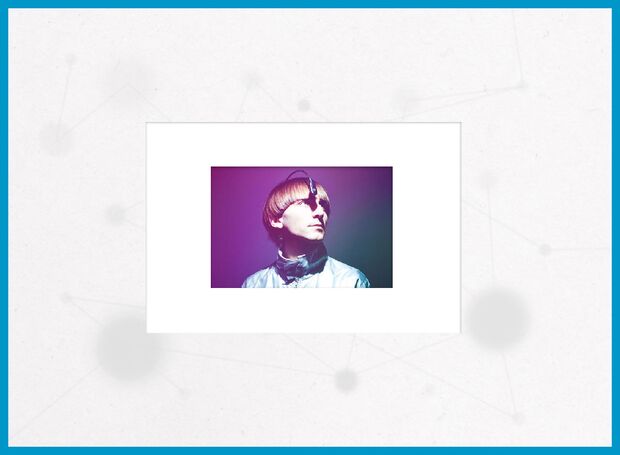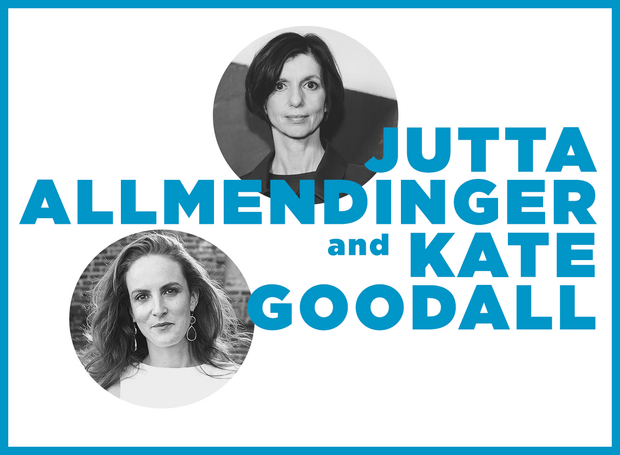Thomas Mann House Events Archive
November 2018
Discussion: Almost Total Recall. The Science and Ethics of Brain Implants
Los Angeles

Brain implants to augment memory used to be the stuff of science fiction, but no longer. Today, brain implants to improve and augment memory is the epicenter of neuroprosthetics R&D and for good reason. Based on current projections, by 2050, persons with various types of dementia, which includes Alzheimer’s disease, will exceed 16 million. Memory loss from traumatic brain injury (TBI) will only raise this number. Some of the largest challenges the neuroprosthetic research continues to face in regards to those developments, are the effective and accurate measurement of brain signals.
Applications for these neuroprosthetics are manifold: from the detection and surveillance of epilepsy, Alzheimer’s, Parkinson’s or even depression, to the reduction of their symptoms. DARPA (Defence Advanced Research Projects Agency) began research over three decades ago on neurotechnology for military personnel impacted by TBI in the theatre of war, but there are developments in this area of research that should give us pause. DARPA is also employing this same research to support military training and effectiveness by using non-invasive interventions to accelerate and improve the performance of complex, military-relevant skills by healthy individuals.
To discuss these developments in the world of bio-medical neuro-engineering, and the attending moral and ethical questions, Professor Yiannos Manoli, Thomas Mann Fellow and Director of the Fritz Huettinger Chair of Microelectronics, will hold a quintescentially polymathic conversation with USC Associate Professor of Neural Engineering Dong Song and USC Professor of Philosophy Janet Levin. As medical advances continue to lengthen the human life-span, our future depends on the breakthroughs in neuroscience and neural interface devices to improve memory function to recapture our past. But it is imperative we bring the moral and ethical checks alongside these developments.
Location
Sidney Harman Academy for Polymathic Study, DML 241
University of Southern California, 3550 Trousdale Parkway, Los Angeles, CA 90089
Tickets
Admission is free
To r.s.v.p. for this event go to www.usc.edu/esvp and enter rsvp code: RECALL
An event by the Sidney Harman Academy for Polymathic Study in cooperation with Thomas Mann House - Los Angeles

#FeminismToMe: Are You In?
Washington, DC

On November 13, at 6:30 pm, the Goethe-Institut Washington will host German sociologist Jutta Allmendinger and DC-based entrepreneur Kate Godall in a conversation about women in the workplace, and the effect feminism in the 21st century has had on their careers. Both women have excelled in their respective fields – Jutta Allmendinger has made great strides in her empirical research on social inequality, while Kate Godall has championed women-led businesses in Washington and around the world – and demonstrated their ingenuity as strong women in the world of work. Allmendinger and Godall will discuss how they arrived in their positions, their current projects, and where they see themselves in the future. How has feminism affected their work? In what ways has “digital feminism” impacted their lives? Moderated by Cathleen Fisher.
Dr. Jutta Allmendinger is President of the WZB Berlin Social Science Center and Professor of Educational Sociology and Labor Market Research at Humboldt University. Her research interests focus on gender inequality in the workplace, sociology of the labor market, rising inequality in Europe, and educational reform in Germany. Dr. Allmendinger earned her Ph.D. degree in Social Studies from Harvard University. Currently she is one of the first Fellows at Thomas Mann House, Los Angeles.
Kate Goodall is the Co-Founder and CEO of Halcyon, a non-profit dedicated to solving 21st century problems by providing space and access to emerging leaders in social entrepreneurship and the arts. Goodall continues to grow Halcyon’s offerings with By The People, an international arts and innovation festival in partnership with the Smithsonian and numerous organizations throughout DC. In 2016, Goodall helped establish WE Capital, a consortium of leading businesswomen investing in and supporting women and women-led companies.
Dr. Cathleen Fisher is the President of the American Friends of the Alexander von Humboldt Foundation. She has been engaged in transatlantic and German-American relations for over 25 years. She joined American Friends in 2008 as executive director. From 2002-2006, she was deputy director of the American Institute for Contemporary German Studies (AICGS), The Johns Hopkins University, where she was centrally involved in management of all operations and programs in support of the Institute’s mission. Before joining AICGS, Fisher served ten years as a senior associate at the Henry L. Stimson Center, where she focused on nuclear arms control, export controls, and transatlantic security issues.
Followed by reception
Location
Goethe-Institut Washington, 1990 K St. NW, Suite 03, Washington, DC 20006
Tickets
Admission is free
RSVP via Eventbrite
An event by
Goethe-Institut Washington and Thomas Mann House, Los Angeles
With support by: German Historical Institute Washington DC and German Research Foundation
Lecture: Yiannos Manoli - A Fully Immersible Deep-Brain Probe with an Analog-to-Digital-Converter under each of the 144 Electrodes for Parallel Neural Recording
Los Angeles
The evolution of tissue-penetrating probes for high-density, deep-brain recording of in vivo neural activity is limited by the level of electronic integration on the probe shaft. As the number of electrodes increases, conventional devices need either a large number of interconnects at the base of the probe or allow only a reduced number of electrodes to be read out simultaneously. Active probes are used to improve the signal quality but still need to route these signals from the electrodes to a base where the readout electronics is located on a large area. In this talk, I present a modular and scalable architecture of a needle probe. Instead of routing or pre-buffering noise-sensitive analog signals along the shaft, it integrates the analog-to-digital conversion under each electrode in an area of 70 μm × 70 μm. The presented reconfigurable 11.5 mm probe with 144 integrated recording sites features a constant width of 70 μm and thickness of 50 μm from top to bottom for minimal tissue damage. The design eliminates the need for any additional readout circuitry at the top of the probe and connects with a digital 4-wire interface. Connected to a cable, it can be fully immersed in tissue for deep-brain recording applications.
Yiannos Manoli holds the Fritz Huettinger Chair of Microelectronics in the Department of Microsystems Engineering (IMTEK) at the University of Freiburg, Germany. He additionally serves as director of the Hahn-Schickard Institute. He is currently a Fellow at the Thomas Mann House in Pacific Palisades. His research interests are the design of low-voltage and low power, mixed-signal systems with over 300 papers published in these areas. The emphasis lies in Analog-to-Digital converters as well as in CMOS circuits for energy harvesting and sensor read-out. Further research activities concentrate on motion and vibration energy transducers and on inertial sensors.
Prof. Manoli received Best Paper Awards from ESSCIRC 2012, 2009 and 1988, PowerMEMS 2006, MWSCAS 2007 and MSE 2007. Spicy VOLTsim, a web-based animation and visualization of analog circuits, received the Multi-Media-Award of the University of Freiburg in 2005 (www.imtek.de/svs). He received the Best Teaching Award of the Faculty of Engineering in 2008 as well as the Excellence in Teaching Award of the University of Freiburg and the Teaching Award of the State of Baden-Württemberg, both in 2010. He holds a B.A. degree (summa cum laude) in Physics and Mathematics, a M.S. degree in Electrical Engineering and Computer Science from the University of California, Berkeley and the Dr.-Ing. degree in Electrical Engineering from the Gerhard Mercator University in Duisburg, Germany.
Location
UCLA, Engineering Bldg. VI, Mong Learning Center – EE-VI – #180
404 Westwood Plaza, Los Angeles, California 90095
For more information, contact Prof. Ankur Mehta (mehtank@ucla.edu)
Panel Discussion: I wish the rent was heaven sent - Housing precarity in Los Angeles and Berlin
Los Angeles

The number of people experiencing homelessness has increased dramatically in Los Angeles as well as in Berlin. As recently as 2015, less than 17,000 people were housed in emergency shelters in Berlin. In the coming years, this number is expected to increase to 47,000. The German authorities are threatened to fail in their search for suitable accommodations.
While homelessness used to be a phenomenon limited to the margins of society, today, even middle-class families can be affected. That also holds true for Los Angeles, the city with the largest number of people experiencing homelessness in the United States. Here, many unsheltered people live in cars, RVs or tents. They are often employed, but unable to afford the high rents.
Jutta Allmendinger (Thomas Mann Fellow, WZB), Ananya Roy (UCLA) and Jürgen Robert von Mahs (The New School) discuss the causes of the lack of affordable housing in Los Angeles and Berlin, contributing legal and cultural factors and what measures and initiatives to be taken, so that both Sister Cities may learn from each other. The discussion will be moderated by journalist Caroline Porter.
Jutta Allmendinger is President of the WZB Berlin Social Science Center and Professor of Educational Sociology and Labor Market Research at Humboldt University Berlin. Her research focusses on social inequality, the sociology of the labor market and social policy. Jutta Allmendinger earned her Ph.D. at Harvard University and is currently one of the first fellows at the Thomas Mann House Los Angeles.
Ananya Roy is Professor of Urban Planning and Social Welfare and inaugural Director of The Institute on Inequality and Democracy at UCLA Luskin . She held the Distinguished Chair in Global Poverty and Practice at UC Berkeley. Her most recent publications include Encountering Poverty: Thinking and Acting in an Unequal World (University of California Press, 2016).
Jürgen Robert von Mahs is Associate Professor of Urban Studies at the New School in New York City. His research and teaching interests include poverty, homelessness, comparative social policy analyses, globalization processes, and social movements. Most recently, he published Down and Out in Los Angeles and Berlin: The Sociospatial Exclusion of Homeless People (Temple University Press, 2015).
Location
Thomas Mann House, 1550 N San Remo Drive, Pacific Palisades, CA 90272
(By Invitation Only)




